Caimh McDonnell on finding success via self-publishing interview
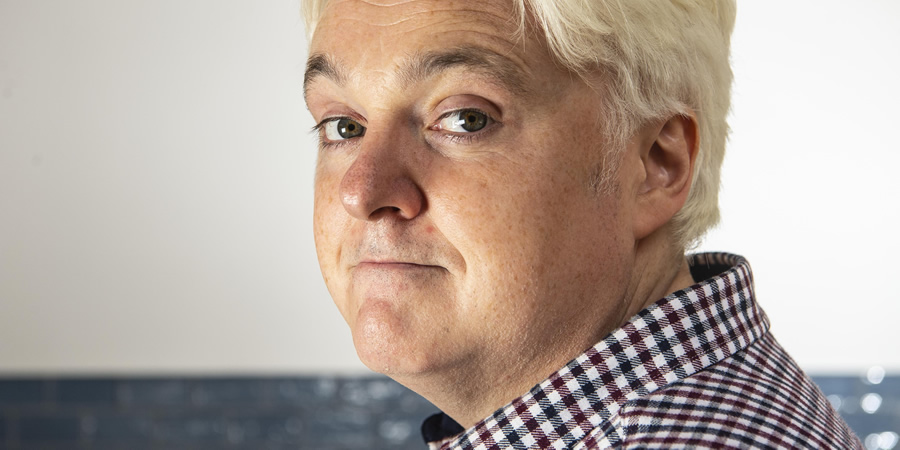
We talk to Caimh McDonnell, one of the nominees of the Kindle Storyteller Award. In this interesting interview, he talks about how to be successful in the world of self-published novels.
Hi Caimh. Tell us about your comedy background...
I started in stand-up way back in 2001 when I moved to London from Dublin. I wanted to give it a go where absolutely nobody knew me.
I almost quit right before my sixth gig but I forced myself to go and do it one more time. It was that night that I met Gary Delaney, who I ended up working with for years, as well as sharing flats and houses with.
It was nice that things went full circle - when I decided to retire from stand-up to concentrate exclusively on the books, my last ever gig was supporting Gary on tour in Glasgow.
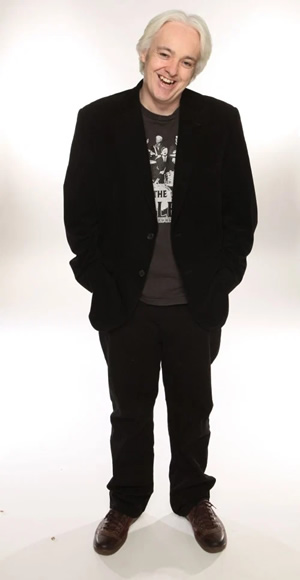
I've loved being a stand-up. Over the last few years I've been lucky enough to support my mates like Gary and Sarah Millican on their tours - it has been incredible. It's honestly inspiring to see people you know have worked incredibly hard on their craft, deservedly reaching the top of the tree.
While being a stand-up over the last 18 years, I also did a lot of writing, both for kids TV and primetime comedy. Looking back, I think everything I did was excellent preparation for what followed, including publishing I Have Sinned and being shortlisted for Amazon's Kindle Storyteller Award.
Honestly, I now see that nothing was ever a waste of time, despite it seeming like it was at the time; and I speak as someone who had probably ten different projects optioned for TV, and nothing ended up getting made. I did have a lot of kids TV stuff made and, again, just the chance to write dozens of scripts for anything is invaluable; you learn an awful lot that you're never going to get from any book of course.
At what point, and why, did you decide to move into writing novels?
I had an idea for a thriller that I wanted to write and I tried to do it myself. I quickly realised that I'd no idea what I was doing. In fact, having written so many scripts, I basically spoke script rather than prose. I needed to educate myself like I was almost learning a new language, so I signed up for a masters in creative writing. The focus that gave me was fantastic.
We had workshops where we had to bring in work and the group would read samples from three writers every week. When other people couldn't do it, I ended up filling in a lot. I was writing short stories, as logically it made complete sense to me that you'd do that before attempting a novel. I'm amazed so many people think they'll just run the marathon without doing a few five or ten kilometre races first.
One of my short stories was going to be about a guy who spent his life being mistakenly constantly for other people. He decides to turn this to his advantage and becomes 'the granny whisperer' - providing a service where he visits Alzheimer's patients in hospital. When I began writing it, I quickly realised it was an idea with no actual story to it. Then, the thought hit me that one of the patients should try to kill whoever they thought he was. It was a real eureka moment. It was also, however, not a short story but a full length novel. I decided to write it just as practice and it ended up being my first book A Man With One of Those Faces.
By the way, I have still not written the original idea I had for the thriller.
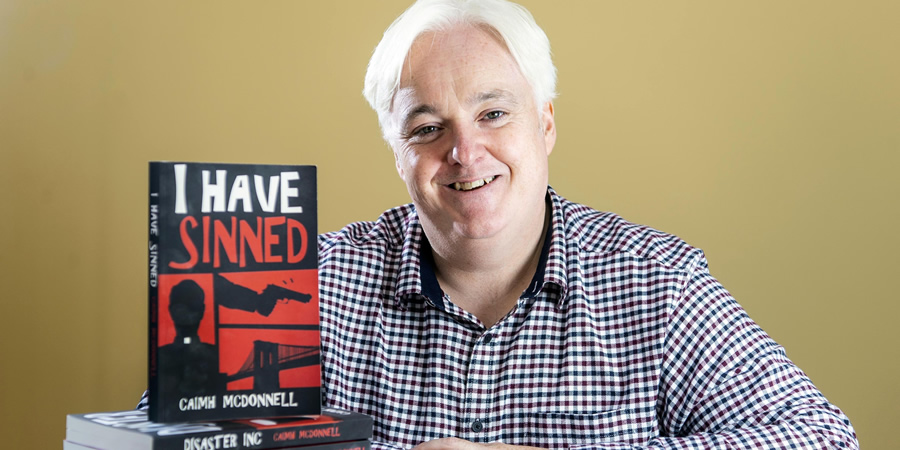
How was it to write that first novel? Easy, or torturous?
All writers, indeed all performers, have that imposter syndrome going on but I guess the massive advantage I had is that I'd been through it as a stand-up, then as a kids TV writer, then writing for comics on the big mainstream shows, and then writing my own sitcoms. My point is, at a certain point even I can recognise that doubting little voice for what it is after you've heard it enough, so it was probably easier for me to put my head down and keep going where others get disheartened.
Also, I'd written an awful lot of scripts by that point, so I was used to sitting at a desk and getting words down on a page. It is a cliché but true that you can't fix what you don't have, so just getting it down on paper is the main thing.
The great thing about writing a book is you can then hire an editor or two and they can give you the perspective you need on what you've done. By this point, I knew my strengths and weaknesses - given my background, dialogue was strong but description wasn't something I'd spent much time on previously. Turns out, after doing a lot of proactive reading I realised that I don't actually enjoy books that spend two pages describing architecture and cloud formations, so I focused on keeping that stuff tight and minimalistic anyway.

The biggest single thing my editor taught me was to have confidence in the characters and the stories. Coming from a stand-up background it is natural to fall back on jokes when you're trying to do something like this. A lot of my edits were actually taking out any jokes that got in the way of the flow.
Tell us more about your writing process...
When I'm writing, I write every day I can - and seeing as I'm now solely a writer, that'll be most days going forward. I go to an office as I have never been able to work in my own home. In fact, I've just bought a house and we're building an office in the back garden because, psychologically, I need that separation.
On a typical day, I start by reworking what I wrote the day before, then I start in on the next chapter. Sometimes I use the Pomodoro method where I set a timer for 40 minutes. After that, I might do two more bursts of 40 or just keep going if I'm in the flow. I plot everything out on cards that are pinned up on the biggest pinboard commercially available that is on the wall beside me.
Do you have an estimate of how long in total, from first word to published status, it takes you to write a book?
It varies. I try and plot out a certain amount of it beforehand but that always changes. I think the crucial thing is that I need to know enough to know what I'm writing on the next few days. Then, when you start writing, things change and you have to adapt. There's invariably two or three points in the process when I take a chunk of the cards down off the board and start reworking them. Those will be days where I sit staring at the board for a couple of hours and restructure it in my mind.
On average, assuming nothing gets in the way, I can complete a 100,000 word first draft of a book in maybe two to three months. Then there's the edit I do (my wife does that), I do again, my developmental editor, my line editor, my proofing team etc. It takes a village!
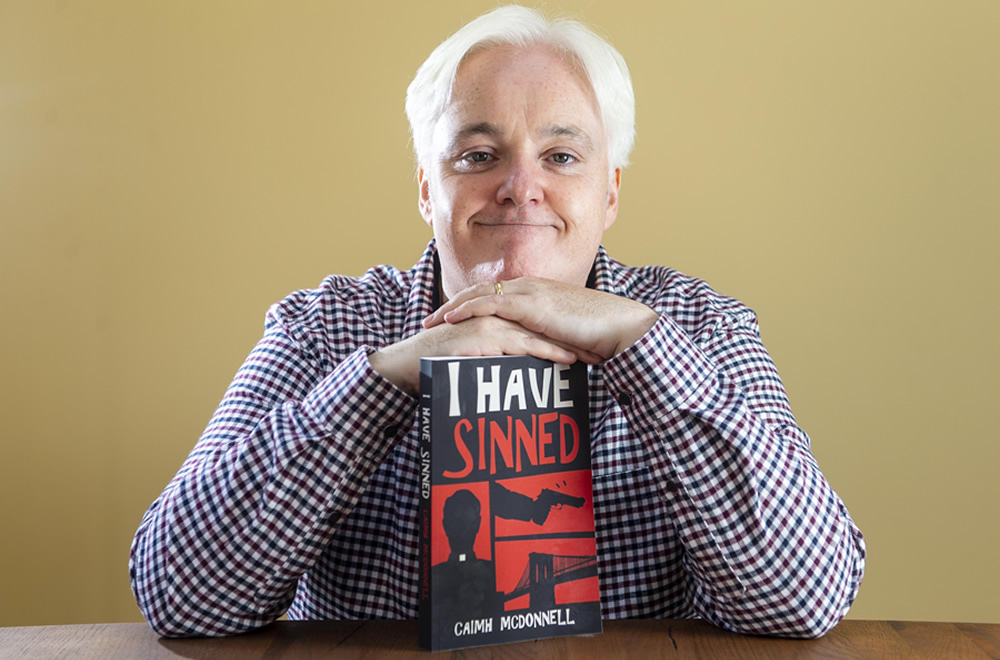
You publish your books independently. What are the advantages of that? Are there any disadvantaged?
The biggest advantage and disadvantage are the same thing - you are in complete control. If you write books, you're running a business. To be fair, what a lot of people don't realise is that if you do that via the 'traditional' method of getting a publisher, you're still running a business. I've spoken to a lot of trad authors. If they ever existed, the days when you'd send your manuscript off and then wait for the royalties and awards to come pouring through the letterbox are long gone.
It definitely does feel intimidating when you start the process but there are now so many great resources out there which can help you get started. It's even got significantly easier since my first book came out three years ago.

I always tell people, David Gaughran's Lets Get Digital book and Mark Dawson's courses are a good place to get started. Mark is an absolute rock star in self-publishing circles, having published his books through Kindle Direct Publishing. He's gone on to make millions and there's rumours of a TV series being on the way. He's a shining example of what can be achieved.
The greatest thing about doing it yourself is that you're in charge of the schedule. Kindle Direct Publishing has allowed me to release six books in a three year period and to build a career. Initially, I tried to go the 'trad' route and there was no interest as I was combining comedy and crime/thriller which they didn't believe would work (despite there being a lot of good examples where it has). Also, agents and publishers are inundated with thousands of books every year, the 'slush pile' system is tricky and slow to get through. Out of frustration, I ended up doing it independently and it was the best decision I ever made. I've been lucky enough to prove that there is a market for how and what I write. More importantly, because of the way traditional publishing works, I'd maybe have two books out by now If I'd gone that route and I'd certainly not be working fulltime as a writer.
None of this is to say I'm anti-trad. In fact, I'm signing a deal for an entirely new series of books that is going to go that route. The difference was this time that the indie route provided me with the body of work, reviews and frankly, sales figures that meant I could get a great agent who was then able to go to publishers who were suddenly much more receptive to what I had to say.
Going forward, I will be what's known as a 'hybrid' author - where some of my work will be traditionally published and some will be independently published. None of that would have been possible without the opportunities Kindle Direct Publishing gave me.
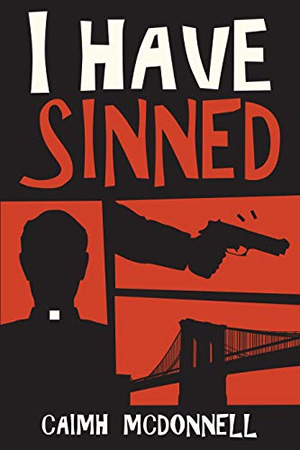
There's so many books on Amazon... how do you make sure your books stand out?
First and foremost, you write the best book you possibly can, get it edited to the highest standard you can and then put a lot of effort into getting a killer cover that is eye-catching and conveys to the browsing reader what kind of book it is.
There are now various well-established avenues you can go down for advertising books to readers which anyone interested can find out about in the books and courses I mentioned above, but never forget that what sells a book is the book.
Word of mouth will sell way more copies than a billboard in Piccadilly Circus ever will. Readers love to talk about books and, more than ever, social media allows them to do so which is a brilliant thing.
While there's a lot of books on Amazon, there's also the potential to reach millions of readers and ultimately, all any author wants is for their books to be read.
You've been shortlisted for the Kindle Storyteller Award. Congratulations! It must be quite a good career boost to get your name on that list?
It's great and a lovely surprise. One of the few downsides of books being independently published is that you get boxed out of a lot of awards. What I love about this award is that it really is based on reader feedback and it is a celebration of authors who took the bull by the horns and shared their work with the world.
I am really looking forward to the awards event on the 14th October and meeting the other shortlist finalists. There is such a diverse mix of authors and it's fantastic to see that so many different voices can find success.
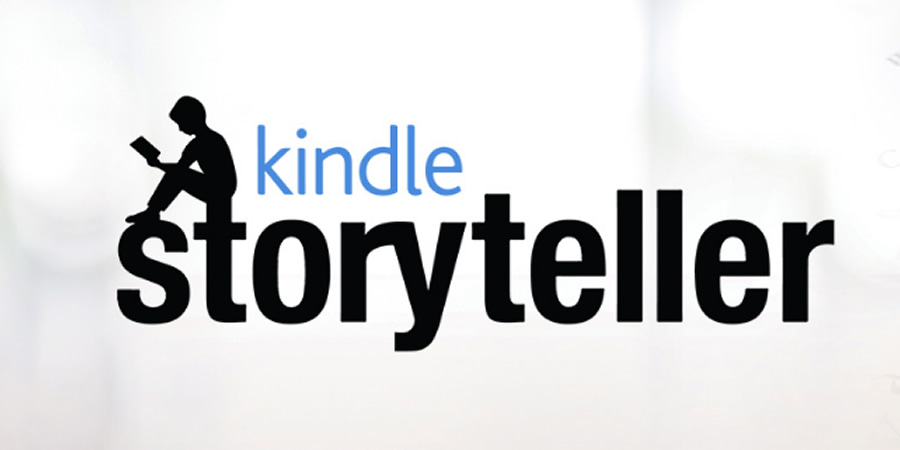
Cruel question: There's a £20,000 prize involved. Have you dared to allow yourself to think what you'd do with the money, if you won?
The cash prize is also a great bonus, but honestly, since I got the news, my wife and I have moved house, then been in America doing research for a new book and attended a writers conference in Florida. I've really not had time to give it much thought.
Thanks to stand-up and the TV work, I've been around the block a few times so things like this I just view as nice surprises but I don't get worked up about it. To be completely honest, when we get home I'm getting a dog now that we've got a back garden. I am far more excited about that!
It's a fantastic prize though and not just the cash element, as there is also the opportunity to have your book optioned by Amazon Studios which would be a dream come true.
More generally and prize money aside, does the Kindle Direct model allow you to make a decent income year-round?
Well, let me put it this way - we just bought a house. :-)
What's next for you? Another book we're guessing?
Several! I can list probably six of the next seven books I'll be writing over the next couple of years. The dog and I are going to be very busy in that office in the back garden.
Find out more about the Kindle Storyteller Award on Amazon
This article is provided for free as part of BCG Pro.
Subscribe now for exclusive features, insight, learning materials, opportunities and other tools for the British comedy industry.



